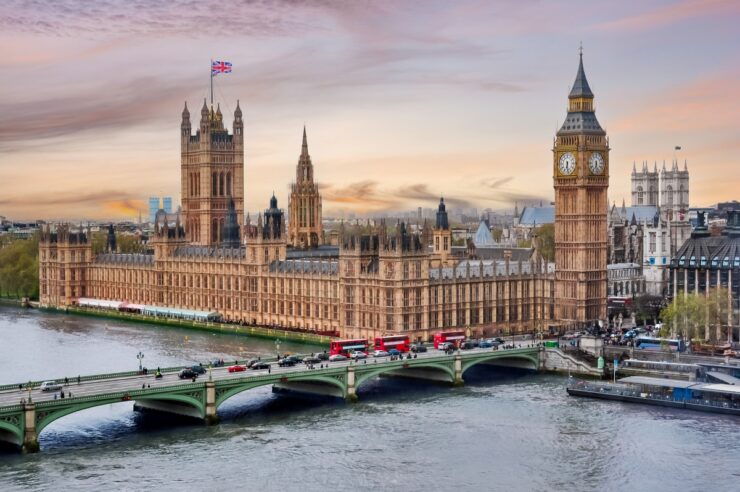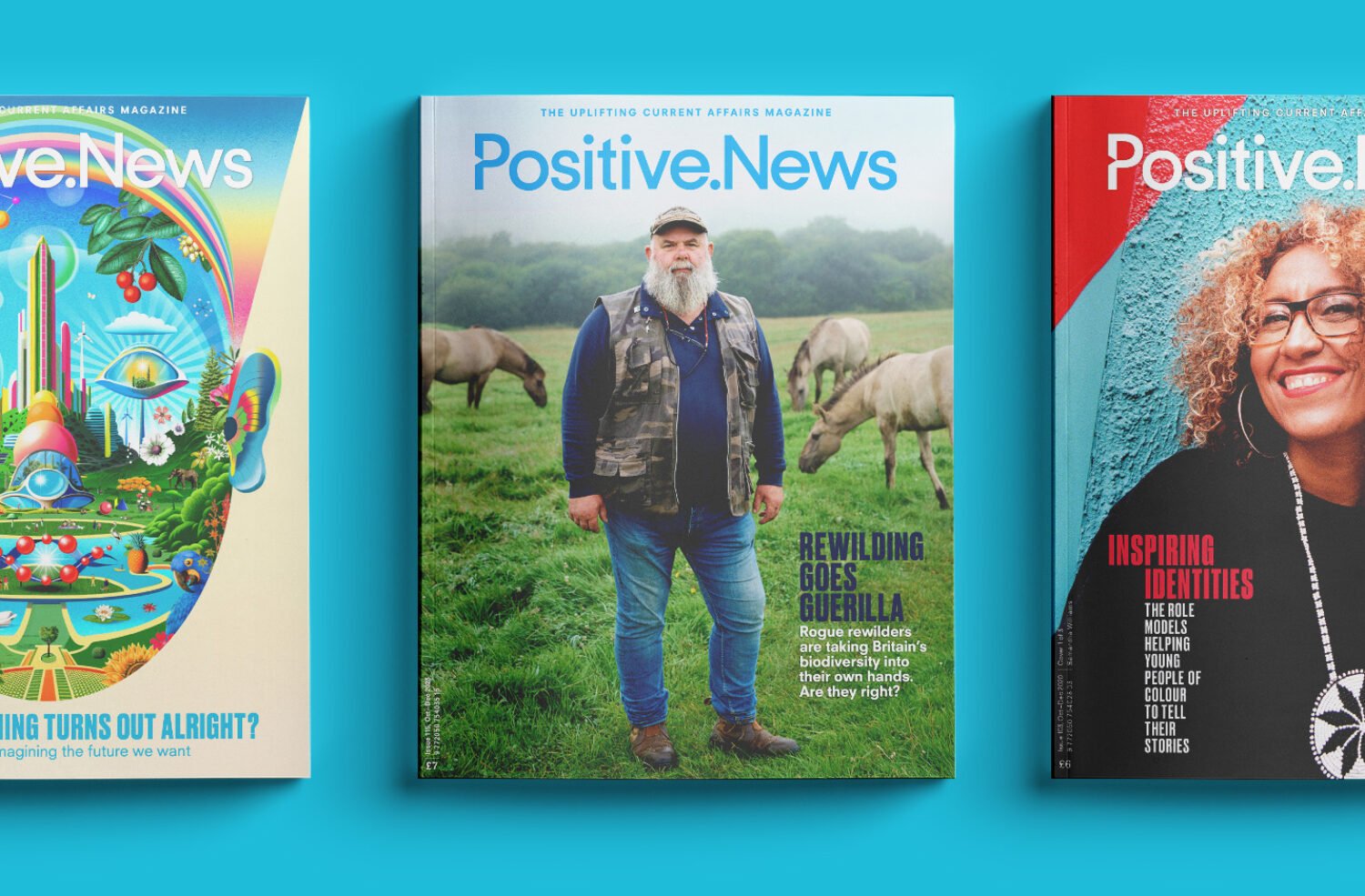Health research entered a new era, English rainforests got a boost, and low-carbon flying inched closer, plus more good news
This week’s good news roundup

In a win for people power, the UK government has published a temperate rainforest strategy for England. The intervention comes after tens of thousands of people signed a petition imploring politicians to protect and expand the ecosystems.
The strategy will be backed by £750,000 for research into temperate rainforests and the threats they face. There will also be seven ‘landscape recovery sites’ across England involving rainforest restoration.
The strategy was welcomed by campaigners, including Guy Shrubsole, author of The Lost Rainforests of Britain. “Before we started campaigning, temperate rainforests hadn’t even been mentioned in parliament by MPs. Now we have the government publishing an entire strategy devoted to this special ecosystem,” he wrote in a blog.
The strategy is missing some substance, however, not least an overarching target or goal. Nor does it commit to giving legal protection to more rainforest sites. “There’s more this government can do to address the missing elements,” said Shrubsole. “2024 is an election year. We urge all parties to engage in a ‘race to the top’ on nature and climate policies.”
Image: Guy Shrubsole

A “treasure trove” of human genetic data has been made available to scientists, ushering in what many believe could be a new era for preventing and treating diseases.
UK Biobank made the full genetic sequences of nearly 500,000 volunteers available for analysis on Wednesday. Participants also provided their medical records.
Such a large set of sequences provides a rich resource for studying the biological underpinnings of human health and disease. Labs around the world can now apply for access to the database.
“It’s just head and shoulders above everything else,” David Curtis, a geneticist at University College London, told the journal Science. “I think there’ll be researchers around the world who will get stuck in with this and make fantastic discoveries.”
There are some limitations, however. Those who provided the data tend to be from more affluent households and are predominately of European heritage.
Image: Louis Reed

A little blue pill that stops HIV infecting the body is “highly effective”, a landmark study has confirmed.
The drug – HIV pre-exposure prophylaxis (PrEP) – is used by thousands of people across the UK already, having performed well in trials.
But while earlier studies were carried out in clinical settings, this was a real-world trial involving 24,000 participants across England. This gave researchers the chance to see how effective the drug is in everyday life.
“Highly effective”, is the verdict. According to the UK Health Security Agency (UKHSA), which led the research, using PrEP reduces the chances of getting HIV by 86%.
“Now we know just how effective PrEP is in real-world settings, substantially reducing the chance of acquiring HIV,” said Dr John Saunders of the UKHSA. “It’s vital that all those who can benefit from PrEP can access it.” HIV testing and PrEP is available for free from sexual health services.
Image: Bowonpat

Low-carbon flying moved a tiny step closer this week. In a world first, a plane powered by ‘sustainable aviation fuel’ (SAF) flew across the Atlantic on Tuesday, albeit amid cries of greenwashing.
The Virgin jet travelled from London Heathrow to New York JFK airport, running on a low-carbon fuel made mostly from food waste.
Decarbonising aviation remains one of the great challenges of the ages, and the successful flight is considered a milestone in that journey.
However, climate conscious travellers shouldn’t pack their suitcases just yet. While SAF produces up to 70% fewer lifecycle emissions than kerosine, its green credentials are debatable – and there’s not nearly enough of it to go round.
“While we wait for genuine zero-emission fuels and technologies to be developed we need to start cutting emissions in the only way that definitely works: flying less,” said the Aviation Environment Federation.
Image: Philip Myrtorp

Europe’s electric vehicle (EV) revolution has stepped up a gear. For the first time, EVs have outsold smut-belching diesel cars in the European Union this year.
According to the European Automobile Manufacturers’ Association, 1.2m new EVs were registered in the bloc between January and October – an increase of 53.1% compared to the same period of 2022.
All told, EVs accounted for 14% of new registrations. Diesel cars, which once accounted for half, slumped to 12% of the share.
It’s good news for the climate and air quality, although EVs do of course come with their own set of environmental problems. Cue a race to clean them up.
Image: Martin Katler

The eurozone’s biggest bank, BNP Paribas, is to pull funding for projects that extract metallurgical coal, which is used in steel production.
In a statement on Thursday, the lender also vowed to cut its exposure to oil and gas by 80% and 30% respectively by the end of the decade.
The bank has been under growing pressure to retreat from fossil fuels after it was sued by advocacy groups in February. It’s the latest financial institution to join the, albeit slow moving, fossil fuel exodus. Banks such as Lloyds have already pledged to defund oil and coal.
Image: Laurent Vincenti

Academy Award-winning actress Olivia Colman (pictured) starred in a viral video this week to highlight the role of pension funds in the climate crisis.
As world leaders headed to Dubai for the Cop climate talks, Colman dressed up as latex-wearing oil exec Oblivia Coalmine in a satirical ad to show how pensions fund fossil fuel projects.
The video was produced by Make My Money Matter, a campaign group led by screenwriter Richard Curtis. It claims that switching to a greener pension is one of the most impactful things people can do for the climate.
Watch the video here.
Image: Make My Money Matter

We must temper our outrage about climate inaction with optimism about the progress we have made and the possibilities that lie ahead.
That was the message from ex-UN climate chief, Christiana Figueres, who may as well have been quoting from the Positive News handbook this week, as she talked to reporters ahead of the Cop28 climate summit.
“I do make a conscious choice every morning to say: ‘Yes, I know what all the bad news is’ – that’s easy to get because that just screams at you from whatever news feed you have – but also, what is positive that is going out there?” she said. “What are the disruptive pieces that are real, strong evidence of the fact that this is changing?”
One such source of evidence of course is Positive News magazine. Another is our weekly newsletter.
Image: Pixel/iStock

Forget legislative bonfires and tax cuts. To really stimulate the UK’s flatlining economy, what about rewriting the rules of business?
It’s an idea put forward this week by the thinktank Demos. It called on UK politicians to rewrite the Companies Act to inject purpose, as well as a profit motive, into business. Doing so, it claimed, would provide a £149bn shot in the arm for the UK economy.
It’s a direction that some companies have already moved in. Read the full story here.
Image: scyther5/iStock

Soaring rents, rising interest rates and growing alarm about the ‘Airbnbification’ of towns will make housing a key topic ahead of the forthcoming UK election.
Successive administrations have failed to get a grip on the crisis. So, what solutions are out there? We spoke to the experts this week, who offered seven ideas that could ease the crisis.
Image: Fas Khan
Main image: Samuel Hess/Alamy
Get your weekly fix of good news delivered to your inbox every Saturday, by signing up to the Positive News email newsletter.
You’re the solution that Positive News needs
Our small, dedicated team is passionate about building a better alternative to the negative news media. And there’s never been a greater urgency to our mission.
But to invest in producing all the solutions journalism that the world is longing for, we need funding. And because we work in your interests – not those of a wealthy media mogul or corporate owner – we’re asking readers like you to get behind our team, by making a regular contribution as a Positive News supporter.
Give once from just £1, or join 1,400+ others who contribute an average of £3 or more per month.
Join our community today, and together, we’ll change the news for good.






